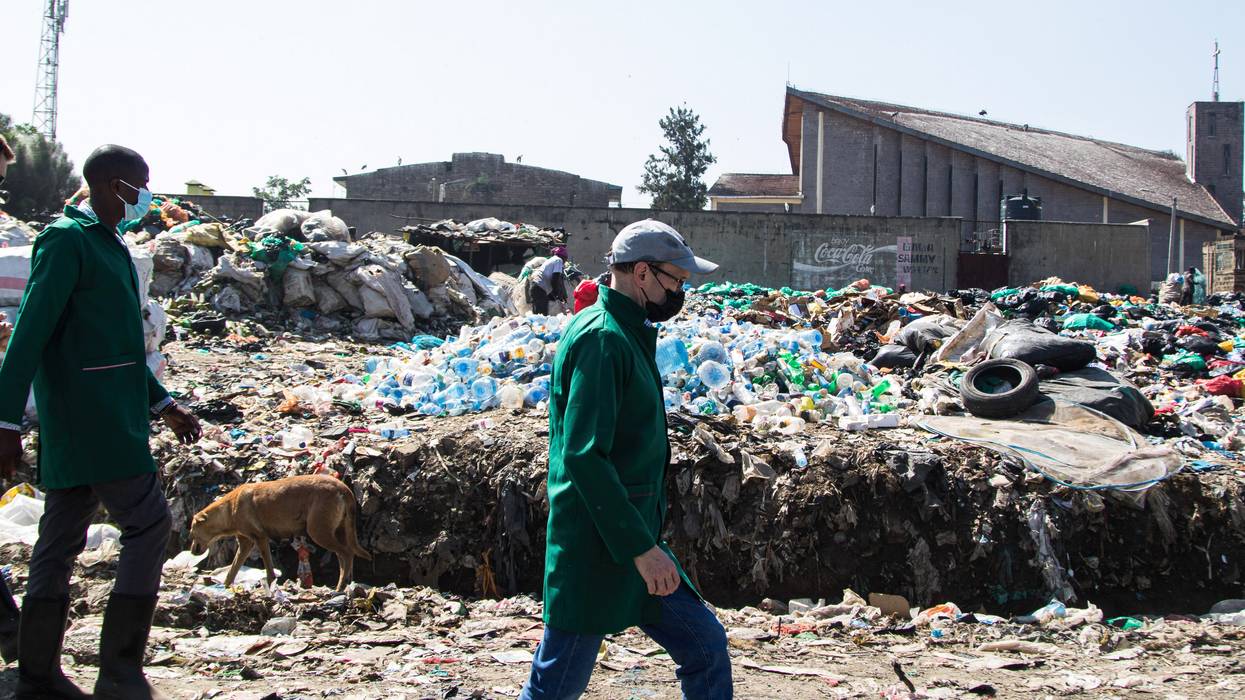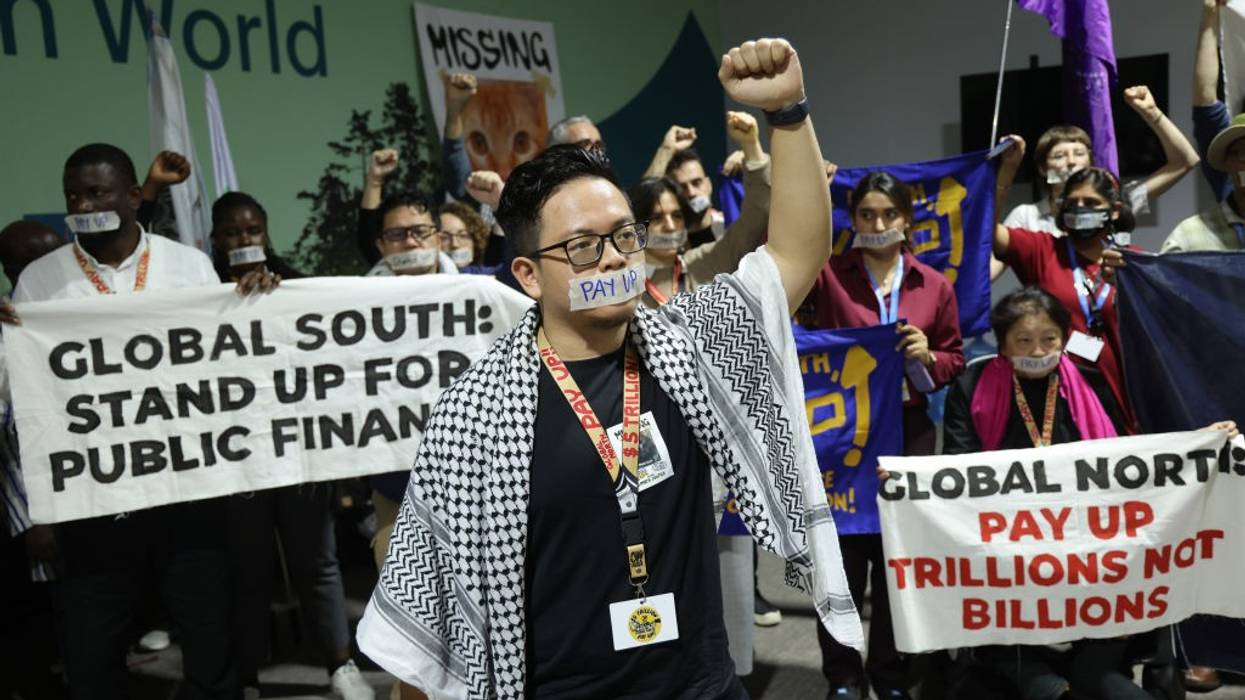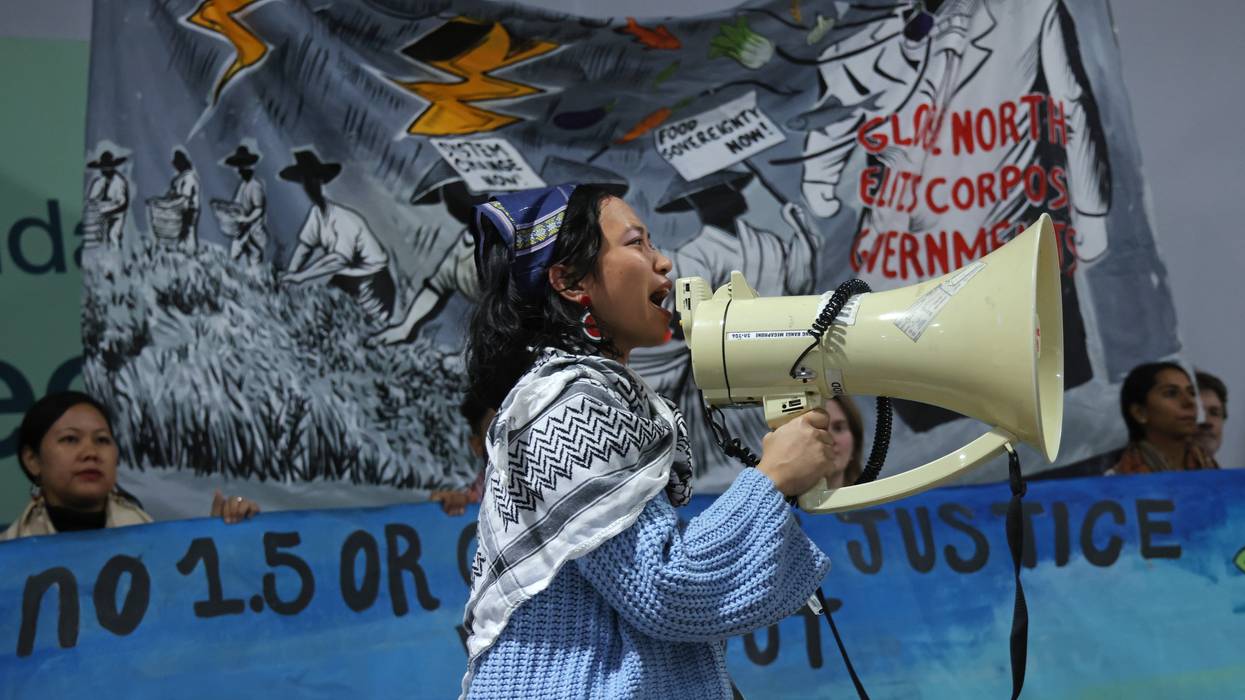The Misleading Allure of Plastic Credits
Government delegates negotiating a plastics treaty should resist the urge to incorporate quick fixes like plastic credits in the text, and instead should set ambitious, non-negotiable targets for plastic reduction and reuse.
The escalating global plastic pollution crisis demands urgent, decisive action, with plastic threatening ecosystems and human health.
Governments are convening at the second part of the fifth session of the Intergovernmental Negotiating Committee (INC 5.2) in Geneva, tasked with forging a historic, legally binding instrument to tackle plastic pollution across its entire life cycle—a mandate enshrined in the United Nations Environment Assembly (UNEA) Resolution 5/14 three years ago.
Plastic credit schemes are increasingly discussed on the sidelines of the ongoing treaty negotiations—often presented under the umbrella of blended and innovative financing. Proponents argue that these schemes can potentially close the gap in countries with inadequate waste management infrastructure. Plastic credits have not explicitly made it in the most recent Chair’s Text at the ongoing INC 5.2 meeting, but they were mentioned in one of the expert group meetings in August 2024, as an innovative financing approach, with the potential to “incentivize companies to shift towards sustainable practices.”
Scientists have estimated that it would cost $18.3-158.4 trillion to support global actions toward zero waste pollution by 2040. According to the World Bank, income generated from plastic credits can potentially help close the funding gap for plastic waste management by 2040, amounting to about $240 billion annually. These benefits may sound enticing particularly with the urgency of securing funding to address plastic pollution, but in fact represent a dangerous distraction, risking greenwashing and diverting critical finance and political action.
The future of our planet depends on preventing plastic pollution at its source, not pursuing plastic credits to offset harm after it is done.
Plastic credits appear to be a win-win solution on paper—companies provide funding for waste collection initiatives to “offset” their plastic footprint. However, this approach mirrors the shortcomings of carbon offsetting, which has faced numerous problems, including “phantom credits,” lack of new emission reductions, and double counting. While a universal definition for plastic credits is still under development, organizations like PCX Solutions, Verra, BVRio, and the World Bank generally agree on this scheme as a results-based financing mechanism, which funds projects designed to tackle plastic pollution, primarily through collection and recycling efforts. Plastic credits have initially been introduced as voluntary schemes, in which businesses may purchase credits to “offset” their plastic footprint, or the amount of plastic they have produced, often done to enhance brand image, meet sustainability commitments, and fulfill corporate social responsibility (CSR) initiatives.
There are several countries that have incorporated plastic credits into their extended producer responsibility (EPR) policies, as a way for companies to achieve regulatory compliance. The Philippines, for example, mandates large corporations to gradually offset their plastic footprint, aiming for an 80% collection or recovery by 2028. This system permits plastic offsetting as an alternative to EPR fees, which are conceptually intended to fully cover plastic waste management costs—a burden often borne by municipalities. However, it remains uncertain whether existing EPR policies with plastic offsets fully cover the cost of managing plastic waste.
Experts have argued that plastic credit mechanisms lack a standardized accounting system, making it challenging to effectively measure credits from plastic offsetting projects and plastic footprints. They also found that plastic credits face difficulties in meeting critical offset criteria such as additionality, permanence, and the “no-harm” principle. It is difficult to prove that the plastic collected or recycled through a credit scheme would not have been managed anyway. A 2023 investigation into Verra’s databases, for instance, found that more than 80% of listed projects have been operational for more than a year before being listed on the registry platform, contradicting claims that these activities are unviable without funding from plastic credits.
There are also concerns about permanence, largely due to the challenges of achieving genuinely closed-loop recycling for plastic waste. The meager 9% global recycling rate for plastic highlights the challenges posed by its complex compositions and chemical additives, as well as the economic impracticality of such interventions. It is not surprising that many of these plastic credit projects involve burning collected plastic waste in cement kilns.
Experts have warned that current credit prices are too volatile to provide sustainable funding for waste management. SourceMaterial uncovered a significant price disparity within a registry platform: Plastic credits linked to co-processing treatment in cement kilns are available for as little as $115 per credit, whereas credits from community-based collection projects can cost up to $630. Using the Philippines EPR case, the price disparity suggests that companies may opt for the cheapest credits derived from burning for regulatory compliance, rather than pursuing plastic reduction measures.
Plastic credits are fundamentally flawed and risk becoming a costly diversion from meaningful action. Government delegates attending the INC 5.2 meeting should resist the urge to incorporate quick fixes like plastic credits in the treaty text, and instead should set ambitious, non-negotiable targets for plastic reduction and reuse, ensuring accountability across the entire plastic life cycle, as mandated under UNEA Resolution 5/14.
A strong, dedicated financial mechanism is essential for the treaty. Developed member states should fund a substantial portion of the contributions, in line with the principles of common but differentiated responsibilities and polluter pays. This will ensure that the health and environmental costs are internalized, and funds are available for remediation to protect human health, biodiversity, and the environment. Likewise, the financial mechanism should also direct investments toward initiatives focusing on plastic production caps and waste prevention, as well as the development and scale-up of safe, non-toxic, and accessible reuse and refill systems, rather than limiting to downstream interventions like recycling and waste management. Furthermore, it should support and facilitate a just transition for workers along the plastics life cycle, including waste pickers and other informal workers and workers in cooperative settings, Indigenous Peoples, and frontline or directly affected communities.
The future of our planet depends on preventing plastic pollution at its source, not pursuing plastic credits to offset harm after it is done. Real solutions begin with reduction, not compensation.


